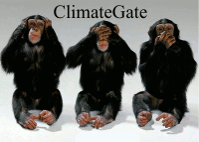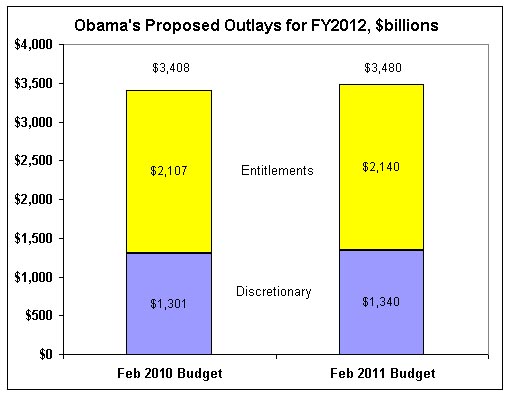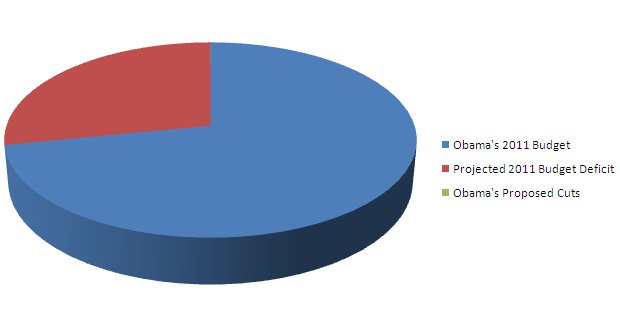04-21-2010

Permalink


Jennifer Burns
|
Subject: Jennifer Burns Doesn't Understand Ayn Rand
Jennifer Burns, the author of Goddess of the Market: Ayn Rand and
the American Right, weighs in on Greenspan and Rand in a short
article titled What
Ayn Rand didn't teach: Cronyism. While she gets some points
right, including the title of the essay, for a person writing about the
market, some of her statements demonstrate an astounding level of
ignorance as to the actual nature of how market's function.
Burns repeats Greenspan's now famous rationalization that he was
shocked that investors didn't act "rationally" in the latest financial
mess.
"Greenspan brought some of Rand's ideas into the highest reaches
of politics. One was her belief in free-markets, widely shared on
the right. More damaging in the long run was her assumption that
investors were rational. "
Here, she is stating that Greenspan held a tragically flawed view of
humanity; one that he swallowed hook, line and sinker from Rand. I'm
really getting tired of this gross misrepresentation of Rand's views
being repeatedly tarred in the media by her past association with
Greenspan during the 1960s and 70s.
During the early 1960s, Greenspan wrote three papers on
Antitrust, The Assault on Integrity and Gold and
Economic Freedom, which were republished in the collection titled
Capitalism:
The Unknown Ideal, a book which provides an overview of Rand's
thoughts regarding the moral as well as practical foundations of
laissez-faire capitalism. In 1974, Greenspan became Chairman of the
Council of Economic Advisers to Gerald Ford, and this move was endorsed
by Rand who hoped that Greenspan would exert a strong free-market
influence on government policy. However, Rand died five years before
Greenspan was appointed as Chairman of the Federal Reserve, a position
that I believe Rand would have criticized as anti-capitalistic. But
there can be no doubt that she would have roundly condemned the
actual policies followed by Greenspan during his tenure, where he
propping up political regimes, manipulating the money supply, and
supported a massive increase in bureaucratic regulation of the economy,
all the while playing central planner and power broker over the
financial institutions upon which all economic activity rests.
Greenspan violated most of the positions he had written about in his
early papers, including his advocacy of a gold standard, as can be
seen in this short
video clip.
You can also watch Peter Schiff's devastating critique of Greenspan
here and
here.
What Burns seems to fail to recognize in her article is that there are
two wildly different types of economic environments: the free-market
and the government controlled, centrally planned economy. In a free
market, individuals invest their time, energy and capital in personal
pursuits, and trade voluntarily with others who are doing the same.
Without going into detail, you can generally rely on others to be
attempting to do what is rationally in their own best interest. This
is not to say that individuals will not make mistakes — sometimes
spectacularly so — but on the whole, you can rely upon their
motive to do what is in their interest because, in the absence of
outright fraud, there is no "safety net" or fallback plan to protect
them from losses incurred by poor judgment. Consequently, they had
better pay attention to their actions, and the actions of others with
whom they engage, in order to protect their investment. This is what
Rand meant when she spoke of investors acting rationally.
However, in the centrally planned economy, the natural checks and
balances of the free-market system, provided by the rational
self-interest of the participants, have effectively been distorted
— in some cases, beyond all recognition. For example, who
cares in which bank you invest your savings? If the bank should fail,
Uncle Sam's FDIC will bail you out, so why waste time checking up
on your bank's underlying stability? Does this mean that the savers
are acting irrationally? Not really. The government has eliminated
all risk associated with savings deposits, so it would actually be
irrational for you or me to invest effort in looking more closely at
the operations of our banks, when that effort would not yield us any
real advantage. Rationally, our efforts would be more profitably
spent elsewhere.
In a similar vein, the government has been imposing so many fiat
requirements, and the FED has been manipulating the money supply,
interest rates and jacking around with fractional reserve legislation
for so long now, that the banks have learned to stop paying attention
to the underlying fundamentals of their capital base and investments,
and start looking to FED policy and pending legislation to try and
determine exactly what actions are truly in their best interest. Now
we have TARP and the newly proposed financial regulations which intend
to make bailouts a permanent fixture of our economy. And just as
FDIC does for depositors, these programs encourage financial
institutions to stop devoting as much time worrying about potential
risky investments, knowing that they will be rescued in the event of
a catastrophe. Or consider how little risk there is when you can
borrow money from the Federal Reserve at effectively zero-percent
interest rates? Wouldn't the rational investor borrow as much as
possible and reinvest it in short term ventures in order to make a
quick buck?
The mortgage crisis presents another example. Congress passed
legislation mandating that Freddie Mac and Fannie Mae were to
substantially increase their underwriting of sub-prime mortgage
loans. This created a market for the packaging and reselling
of these loans, and other financial institutions, operating in their
rational self interest, stepped up the creation of these bad loans,
knowing that they had a ready buyer for their disposal, thereby
minimizing the original risk. Their action were also nudged along
with a little arm twisting by members of Congress who let it be known
that should they not comply, their business life could be made very
uncomfortable as a result of intervention by the FED, SEC and future
legislation. Is it irrational to take seriously the threats of a
mob boss who threatens to break your kneecaps if you don't play ball?
There are many other examples that could be discussed to show similar
ways that government perverts normal market functions. But, in all
cases, Rand's observation that, in general, people attempt to act
rationally, within the context of their knowledge, still holds true.
What goes unacknowledged by Burns, Greenspan, the media, the
government, and many people who engage in the economy, is the obvious
point that when you muck with the properly functioning incentives of
the free-market, and replace them with the distorted policies of
government planning, then the rules of the game have changed
drastically, affecting what elements are now within each participant's
rational interest. When Greenspan, or Obama or Burns state that people
act irrationally, they show their ignorance in believing that you can
manipulate the economic playing field by whatever means you wish, while
still expecting everyone else to blindly go along, acting as if the old
free-market rules were still in force. They aren't! And a failure to
understand this may make the actions of others look irrational, but
those "irrational" actions are the direct outcomes of the truly
irrational government interventions into the market, where the
assumption is that a small group of elite planners can substitute their
supreme wisdom for that of millions of unique individuals. They can't!
|








